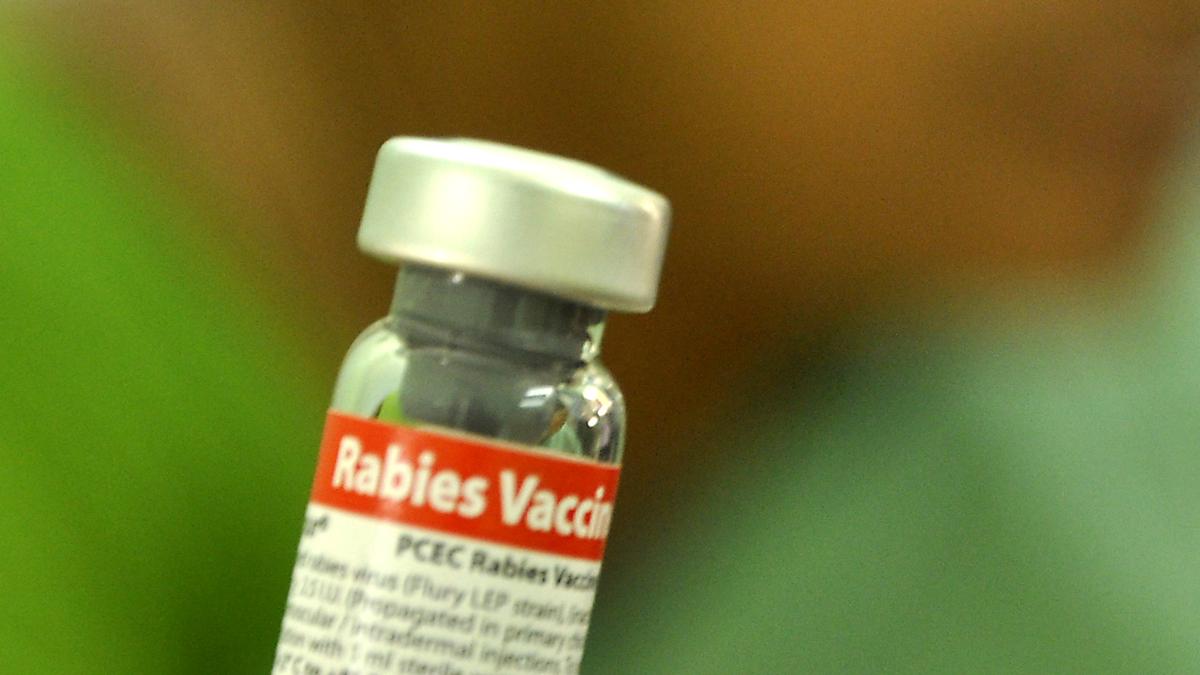The death of a 50-year-old man in Chennai due to rabies, despite reportedly receiving both immunoglobulin and a complete course of the vaccine after a dog bite, has raised questions about vaccine failure and gaps in post-exposure care. Experts underline that while rabies is almost always fatal once symptoms develop, it is also fully preventable if the correct steps are taken promptly.
Immediate wound care
“The very first step after a bite is washing the wound thoroughly with soap and running water for at least 15 minutes. This alone can wash away most of the virus,” said C. Ananthakrishnan, senior consultant in internal medicine, Prashanth Hospitals, Chennai. He described wound cleaning as “as golden as the vaccine itself,” emphasising that the first hour after a bite is critical. Sindhuja L., neuro-physician, VS Hospitals, Chennai added that many failures occur because people either miss or delay this step. “If the virus enters the nerves before the vaccine starts working, the outcome can be fatal,” she said.
The location and depth of the wound play a decisive role in determining outcomes. “Bites on the head, face, neck and upper limbs allow the virus to travel quickly to the brain. These require an aggressive approach,” explained Surendran R., consultant, infectious diseases & hospital infection control, SIMS Hospital, Chennai.
Category 3 wounds — deep bites with bleeding, contamination of mucous membranes, or multiple injuries require immunoglobulin in addition to the vaccine, he said.
Dr. Sindhuja recalled treating a child bitten on the face who developed rabies despite receiving the vaccine, underscoring how the proximity of the bite to the brain accelerates disease progression.

Correct use of vaccine
The post-exposure rabies vaccine (PEP) regimen includes five doses given on days 0, 3, 7, 14, and 28 following a potential exposure. For high-risk Category 3 bites, rabies immunoglobulin is also given, ideally infiltrated into and around the wound to neutralise the virus locally.
Errors in vaccine or immunoglobulin administration remain a significant concern. “Immunoglobulin should be infiltrated thoroughly into and around the wound, not just given intramuscularly. Missing areas, especially on the face and neck, increase the risk,” said Dr. Ananthakrishnan. Completing the vaccine schedule is equally critical, doctors noted. “Getting just two shots is not enough. If the full course is not completed as per schedule, protection drops significantly,” he said.
Ajay Christopher, associate consultant in Emergency Medicine, Rela Hospital, Chennai, pointed out that starting the vaccine or immunoglobulin late, more than a day or two after the bite can also render the intervention ineffective.
Addressing systemic gaps
Timely initiation, proper administration site (usually the deltoid), adherence to the full schedule, and maintenance of cold chain are critical to ensure full protection. Experts pointed to cold chain maintenance as a weak link in the system. “Rabies vaccines are sensitive biological products. If they are frozen, or not stored between 2°C and 8°C, their effectiveness drops drastically,” said Dr. Christopher.
Dr. Surendran added that improper handling during transport and storage failures at hospitals could result in ineffective doses being administered.
Underlying health conditions may also affect vaccine response. “Patients who are immunocompromised, those with diabetes, on transplant medications or heavy alcohol use, may not respond as well to vaccines,” said Dr. Ananthakrishnan.
Systemic issues also persist. “In smaller towns, immunoglobulin is not always available, and public awareness about immediate wound washing is still very low,” noted Dr. Sindhuja.
Dr. Surendran stressed the need for strict protocols on vaccine storage and handling, regular monitoring and training of healthcare staff.
Focus on prevention
Despite these gaps, experts emphasised that rabies remains one of the most preventable diseases. “Rabies has no cure once symptoms start, but if dealt with properly, it is 100% preventable,” said Dr. Ananthakrishnan.
Doctors also said that no animal bite should ever be ignored. “Even a scratch from a stray dog or cat can be dangerous. Wash immediately, seek medical care and never skip or delay vaccine doses,” said Dr. Sindhuja.
For those at high risk, such as people frequently handling animals– pre-exposure vaccination can also be considered, Dr. Surendran added.
“The take-home message according to experts: rabies deaths can be avoided if wound care, vaccine, and immunoglobulin are administered correctly and on time.”
Published – September 20, 2025 12:17 pm IST

